Best flea treatments for cats 2025 to keep the pests at bay
Clear the critters with best flea treatments for cats with options for prevention and treatment.
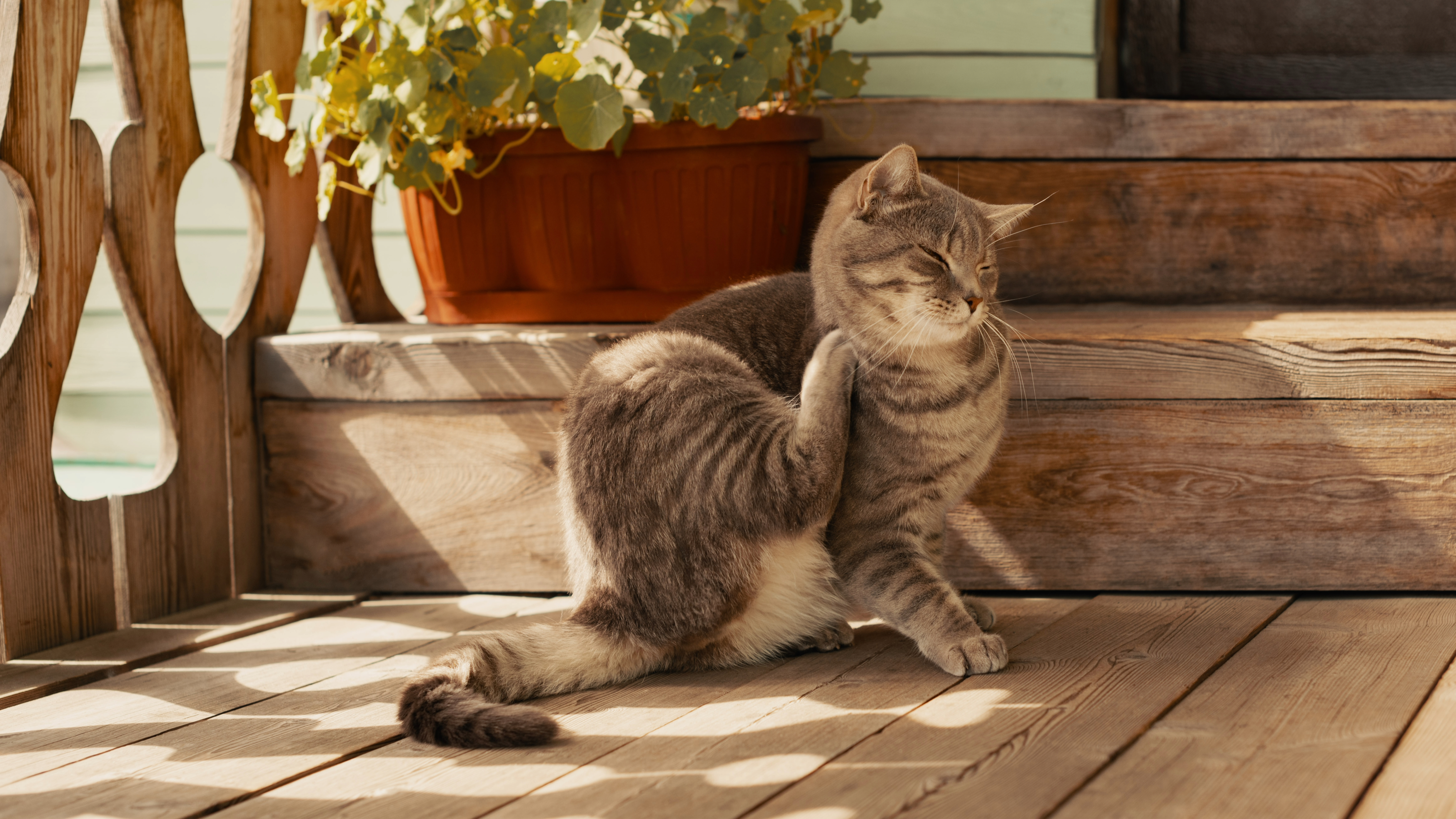
- Quick list
- 1. Best overall flea treatment for cats
- 2. Best budget flea treatment for cats
- 3. Best flea collar for cats
- 4. Best fast acting flea tablets
- 5. Best fast-acting topical flea treatment
- 6. Best flea treatment for kittens
- How to choose
- Fastest way to get rid of fleas
- Should I clean my house?
- Can cats get rid of fleas on their own?
Investing in one of the best flea treatments for cats is money well spent if you're looking for a reliable and effective way to protect your kitty from pesky parasites. Not only do these products offer you as a pet parent a ton of peace of mind, they'll also ensure your feline friend stays happy and healthy throughout their life.
When it comes to flea treatments for cats, there are plenty of options available. Many people debate the pros and cons of flea medicine vs flea collars, but in reality, there's no right or wrong answer here. Topical treatments are easy to apply, often protect against a range of parasites and are fast-acting. However, they typically need to be reapplied every 30 days.
The best flea collars for cats, on the other hand, can provide protection for up to eight months offering much better value for money for those on a budget. The downside is that they aren't always as effective as topicals at protecting all of your cat, so fleas may still gather near their tail.
To help you find the best flea treatment for your cat, we spoke to vet's Dr. Diana Hasler, Dr. Rebecca MacMillan and Dr. Joanna Woodnutt to get their expert advice on which topicals, tablets and collars they'd recommend. We've listed all of their top picks below, plus our own favorite budget buy.
The quick list
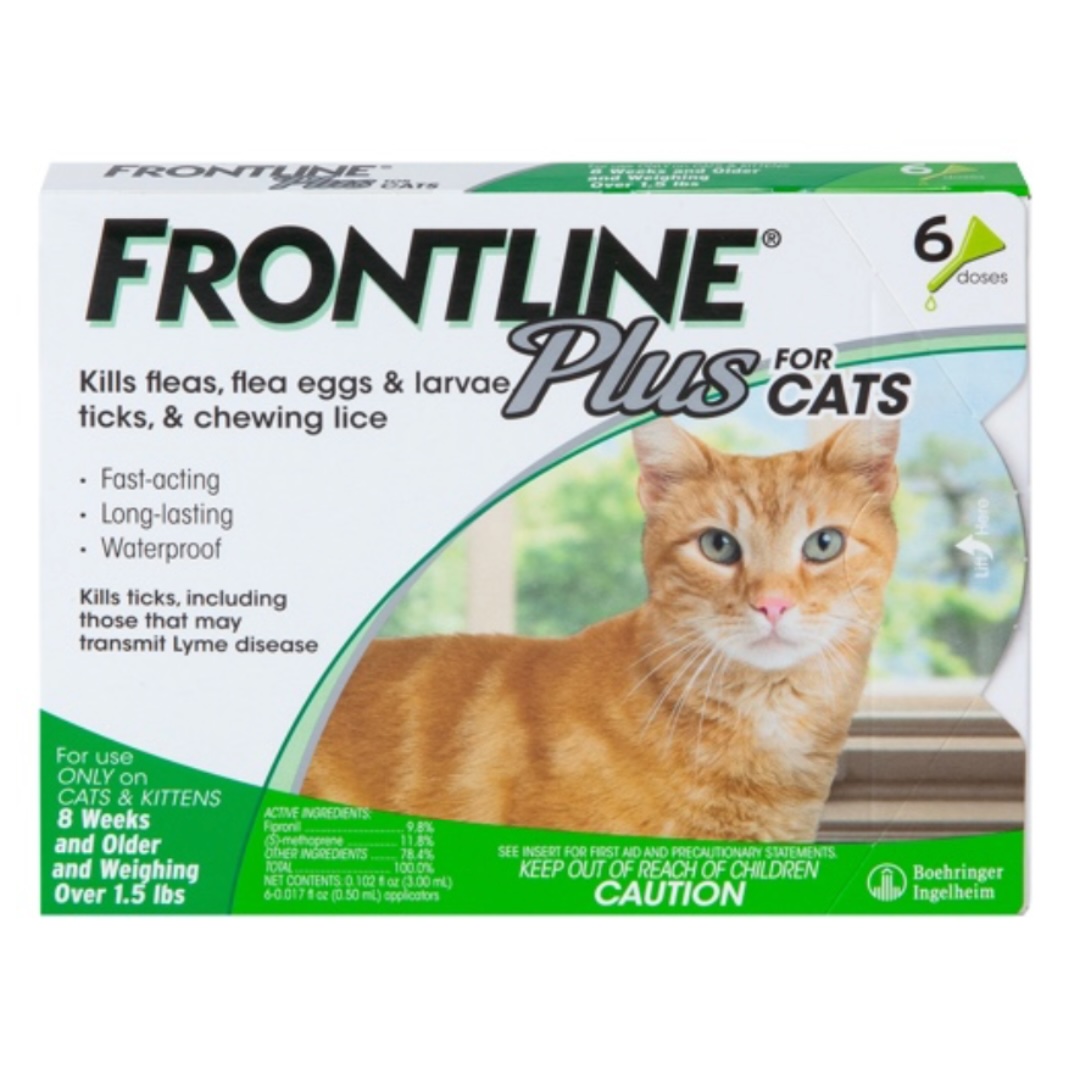
The best overall flea treatment for cats
Offering long-lasting flea and tick protection, this fast-acting topical treatment gets to work straight away and is waterproof 24-hours after application. Available without prescription and coming in a handy pack of six, it's suitable for cats and kittens aged eight weeks and older.
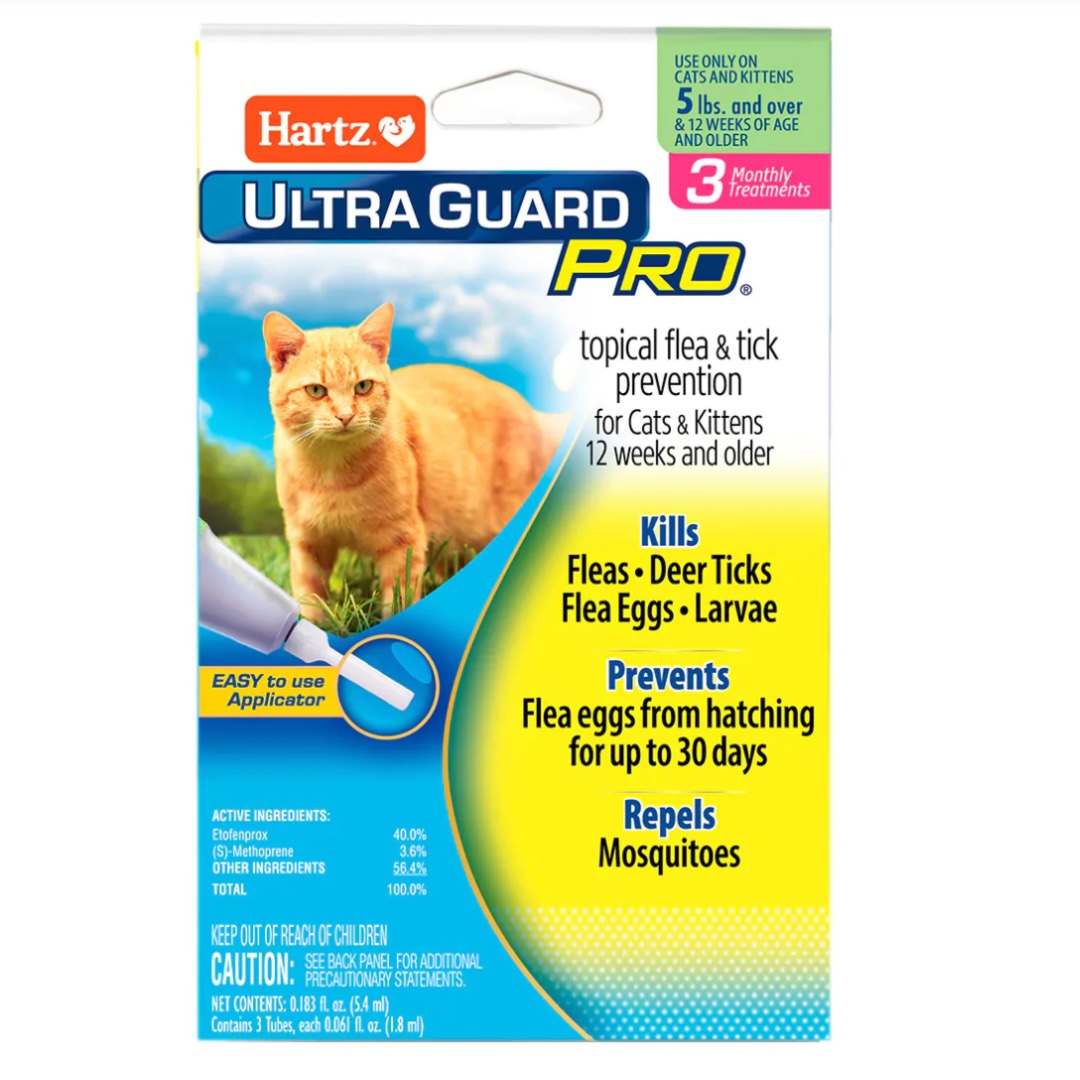
Best budget flea treatment for cats
If you're looking for an affordable and effective flea treatment for your feline fur baby, this one from Hartz is well worth considering. Including three monthly treatments in easy to apply, single dose tubes, it kills fleas, flea eggs, flea larvae and deer ticks and repels mosquitoes for 30 days.
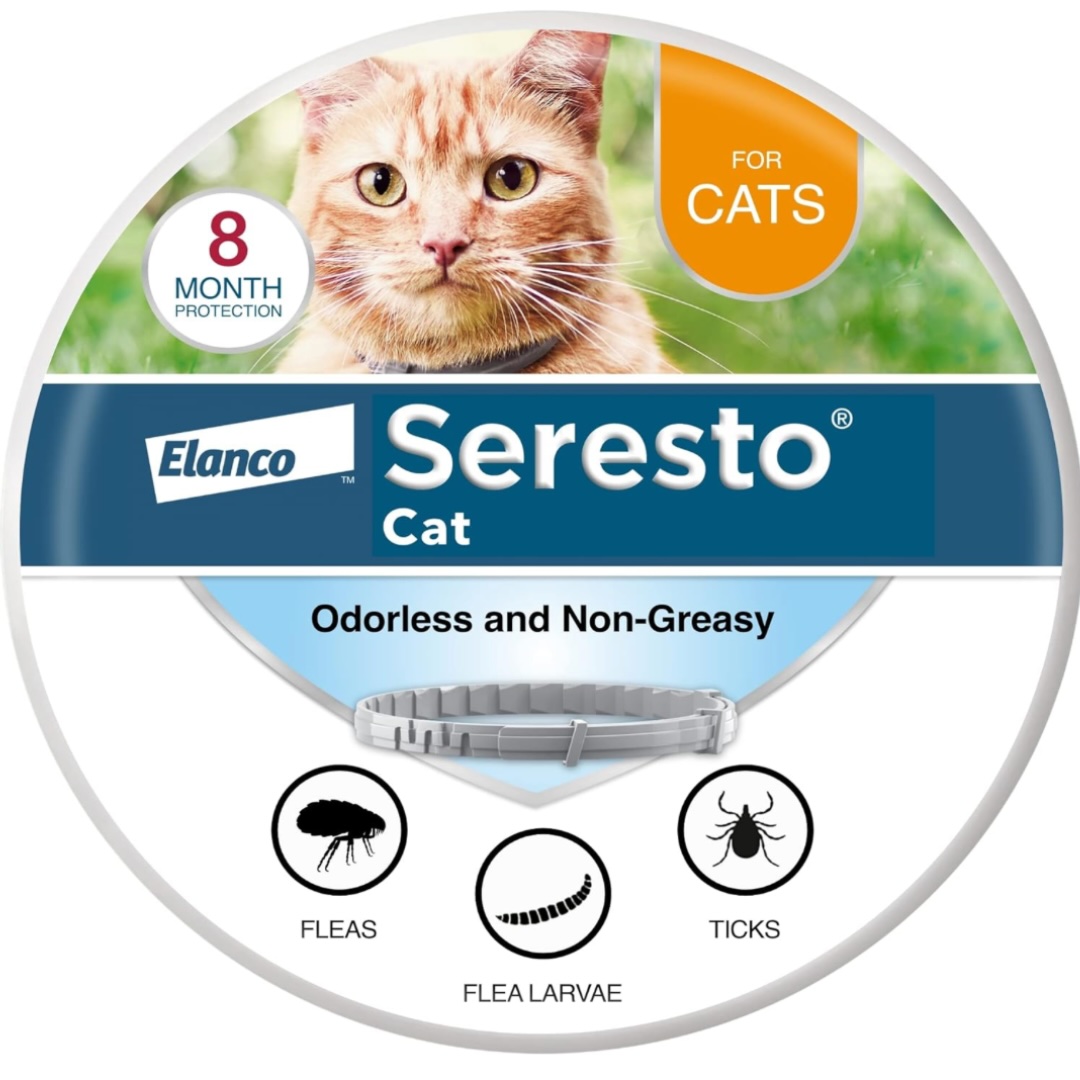
Best flea collar for cats
This vet-recommended flea collar is a popular choice amongst pet parents looking for an alternative to topical treatments. Offering eight months of protection against fleas and ticks, it starts working 24-hours after it's been fitted and is non-greasy, waterproof and comfortable to wear.
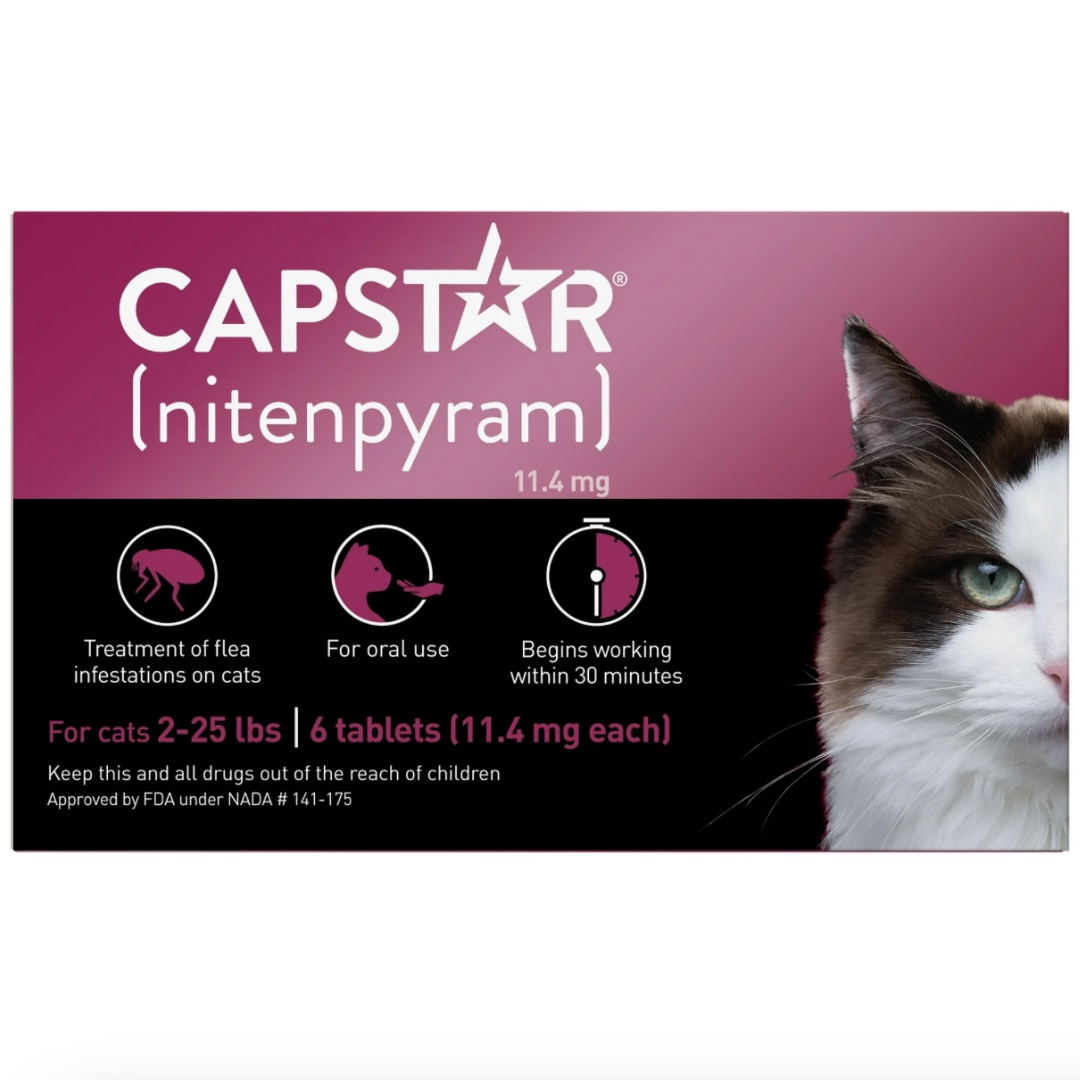
Best fast acting flea tablets
A super fast and effective flea treatment that gets to work in just 30 minutes, these tablets from Capstar are the number one recommended oral flea treatment for cats with flea infestations. Providing quick relief in just a single dose, they're suitable for cats and kittens aged four weeks or older who weigh more than two pounds.
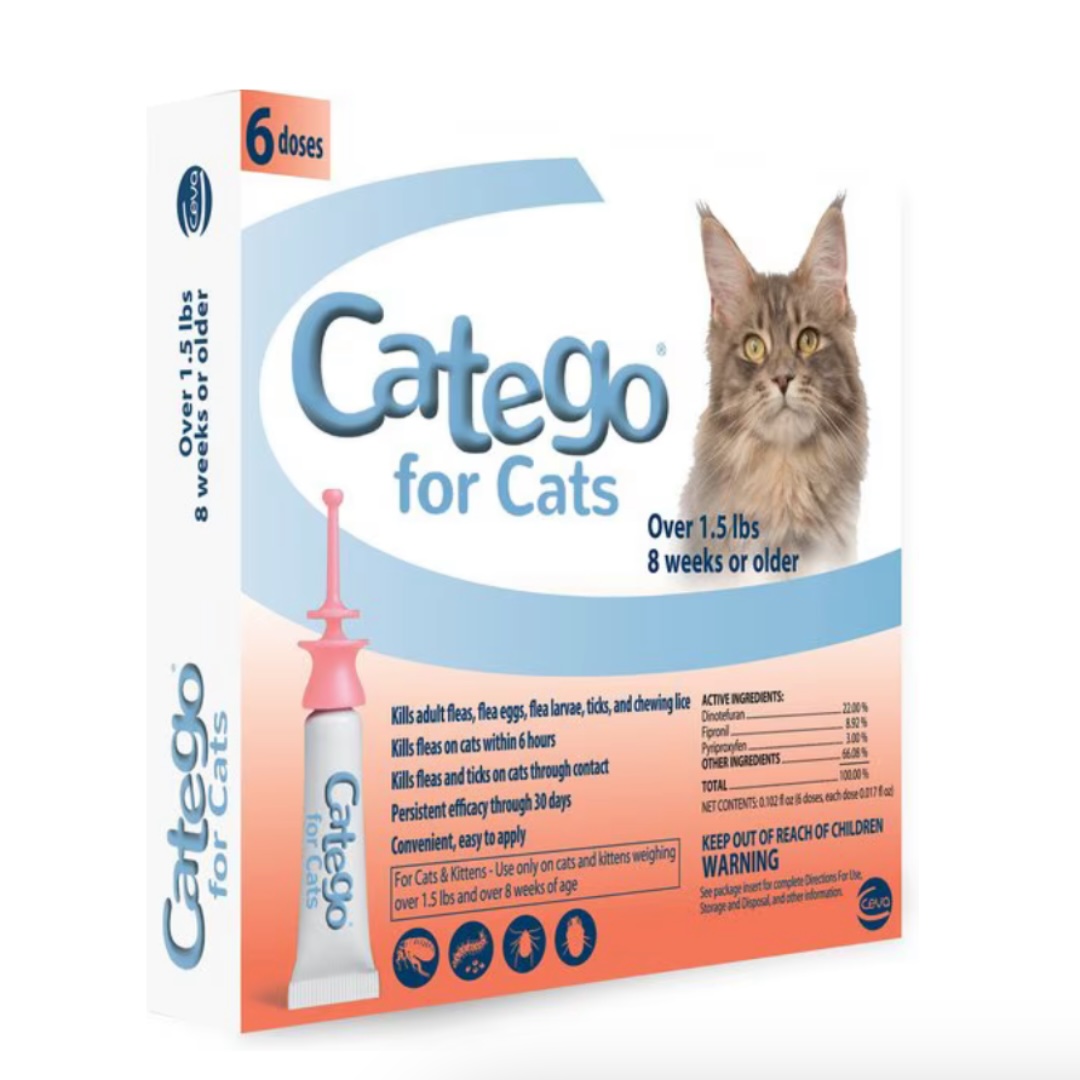
Best fast acting topical flea treatment
The only product on the market to feature the unique combination of Dinotefuran, Fipronil and Pyriproxyfen, Catego is also the fastest acting topical flea treatment, killing fleas in as little as six hours. Fragrance-free, non-greasy and quick drying, it's suitable for cats and kittens aged eight weeks and older.
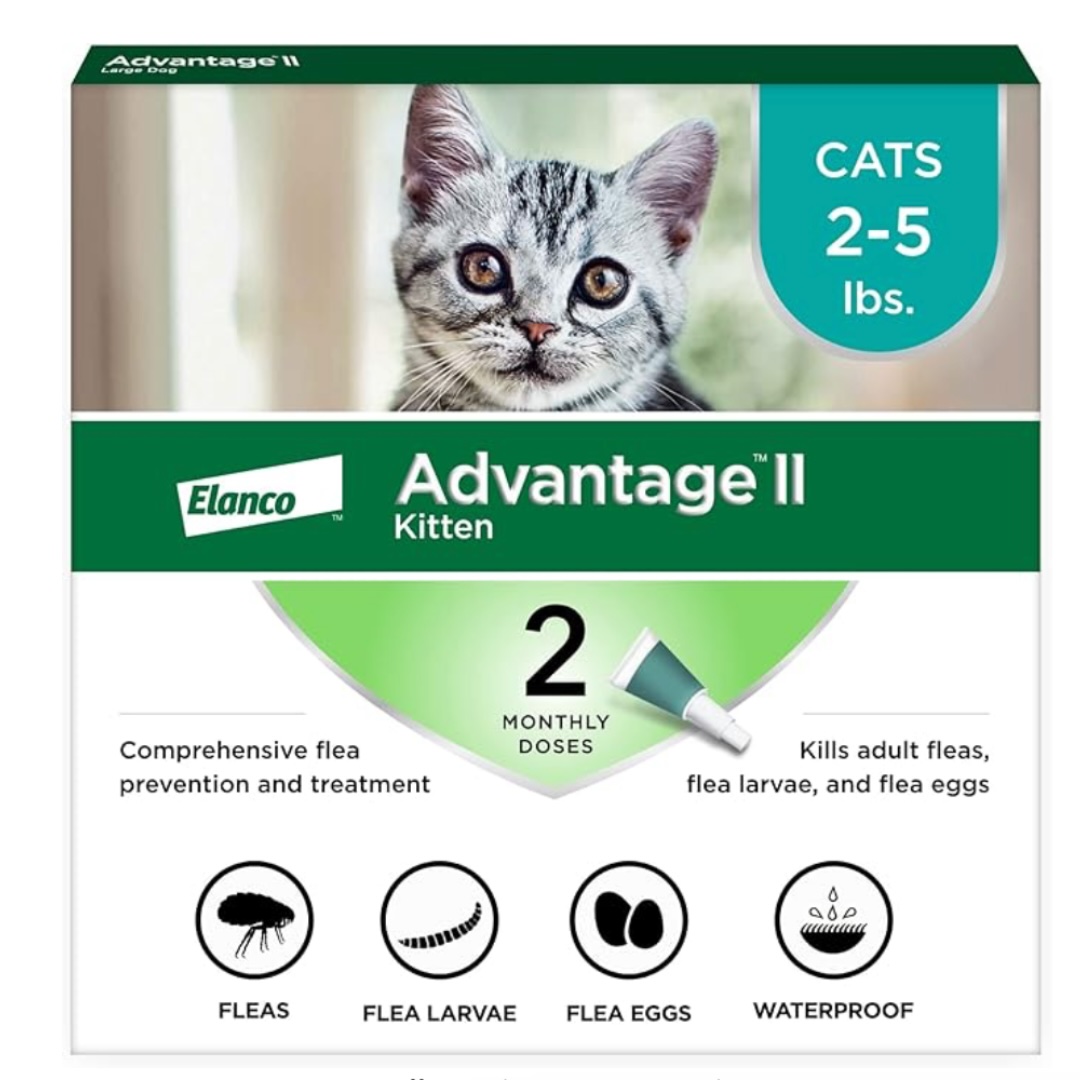
Best flea treatment for kittens
Protect your pint-sized pet from fleas with this comprehensive vet-recommended prevention and treatment system. It gets to work killing adult fleas, larvae and eggs 12-hours after application and is fragrance-free and waterproof. Suitable for kittens weighing two to five pounds and aged eight weeks and over.
The best flea treatment for cats we recommend in 2025
Why you can trust PetsRadar
The best overall flea treatment for cats

1. Frontline Plus For Cats
Our expert review:
Specifications
Reasons to buy
Reasons to avoid
This spot-on treatment contains fipronil, an insecticide, and (S)-methoprene, which prevents the development of flea eggs and larvae. Fipronil accumulates in the skin and rapidly kills fleas when they hop onto your pet. This product is effective for 4 weeks, and it should not be used in kittens under 8 weeks old or who weigh less than 1 kg. For rabbit owners, please be aware that fipronil can be fatal to rabbits who come into contact with this treatment.
Dr. Diana Hasler BVM&S MRCVS
When it comes to a reputable brand that continually offers high quality flea treatment and prevention products, Frontline is almost impossible to beat. Unlike many other formulas on the market, this triple-action topical not only targets fleas and ticks but lice as well making it an absolute must for any cat that loves setting off on daily adventures into the great outdoors.
We love that Frontline Plus is easy to apply, completely waterproof and offers protection for 30 days. It comes in ready-prepared individual applicators, so you don't have to worry about making a mess while you try to measure it out - simply pop two dots a few centimeters apart on your kitty's neck, and they’re good to go.
This is a super-strong formula, but rest assured that while it's tough on fleas, ticks and lice, it's not absorbed into your kitty's bloodstream, which means it's safe to use on all adult cats and kittens over the age of eight weeks. It also comes in a convenient six-dose pack, so purchase two and you can rest easy knowing that your fur baby is protected from pesky parasites for a full 12 months.
The one drawback is that unlike tablets, this topical isn't the fastest-acting product we've seen, which means you may want to pair it with an oral medication in the first instance if your cat currently has an infestation. This will help provide immediate relief for those first 24 hours until the topical can really come into effect.
That being said, given that Frontline Plus used to only be available for use by veterinarians, this is a product that has far more pros than cons, making it a must-have addition to your flea-treatment arsenal.
The best budget flea treatment for cats
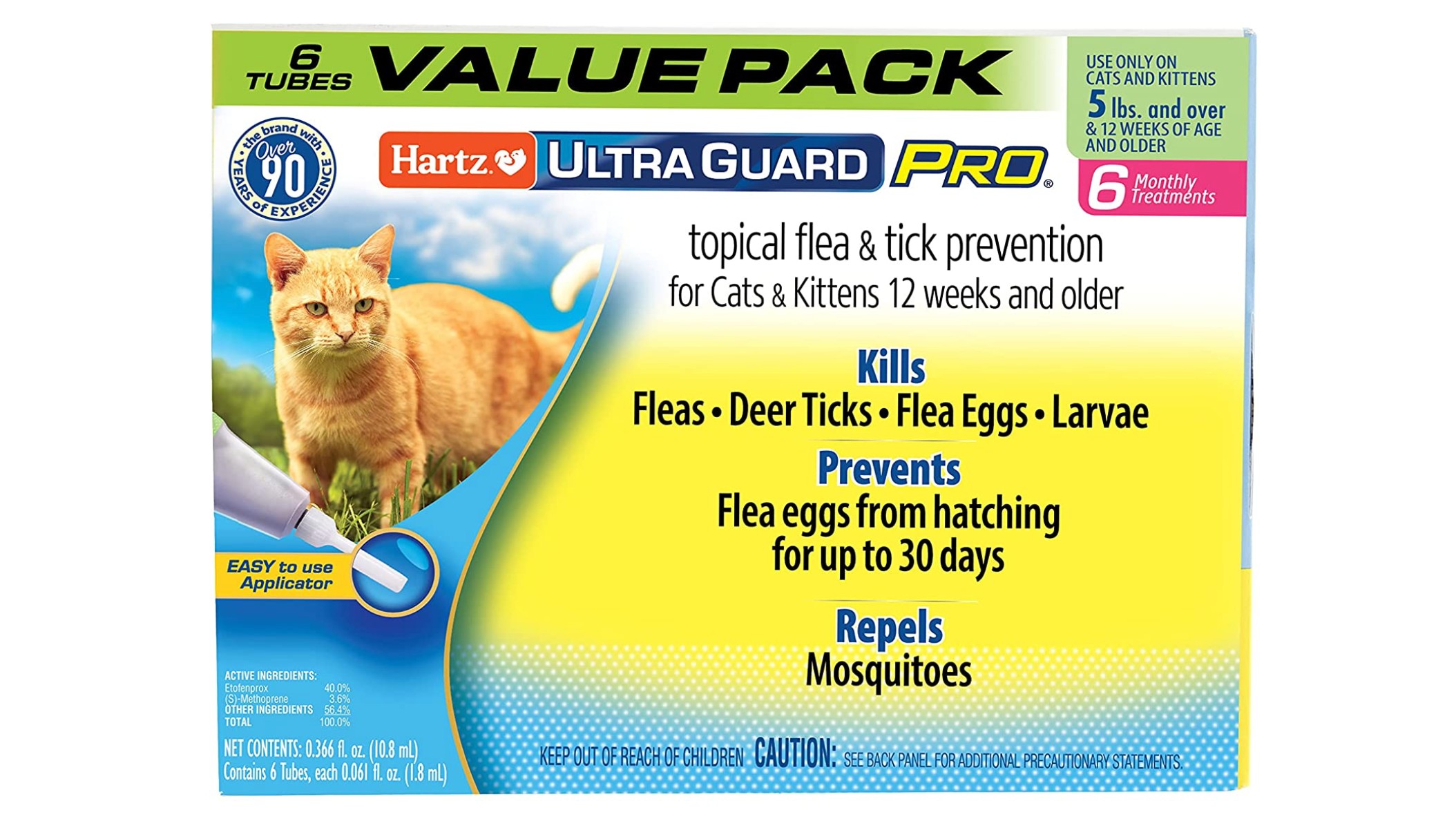
Hartz UltraGuard Pro Topical Flea & Tick Prevention for Cats & Kittens
Our expert review:
Specifications
Reasons to buy
Reasons to avoid
Want a powerful topical flea prevention treatment but can't stretch your budget to some of the bigger named brands? Then this wallet-friendly offering from Hartz is a great choice.
Offering an impressive six month supply at a super affordable price, this long-lasting monthly topical flea treatment is suitable for cats over 5 lbs and 12 weeks of age, is quick drying and will prevent re-infestations for 30 days.
This safe yet powerful formula is fast acting and will kill fleas, ticks, eggs and larvae and it also repels mosquitoes. It also features a patented and easy-to-use Pro-Glide angled applicator with rounded edges for a softer more pleasant application experience.
The best flea collar for cats
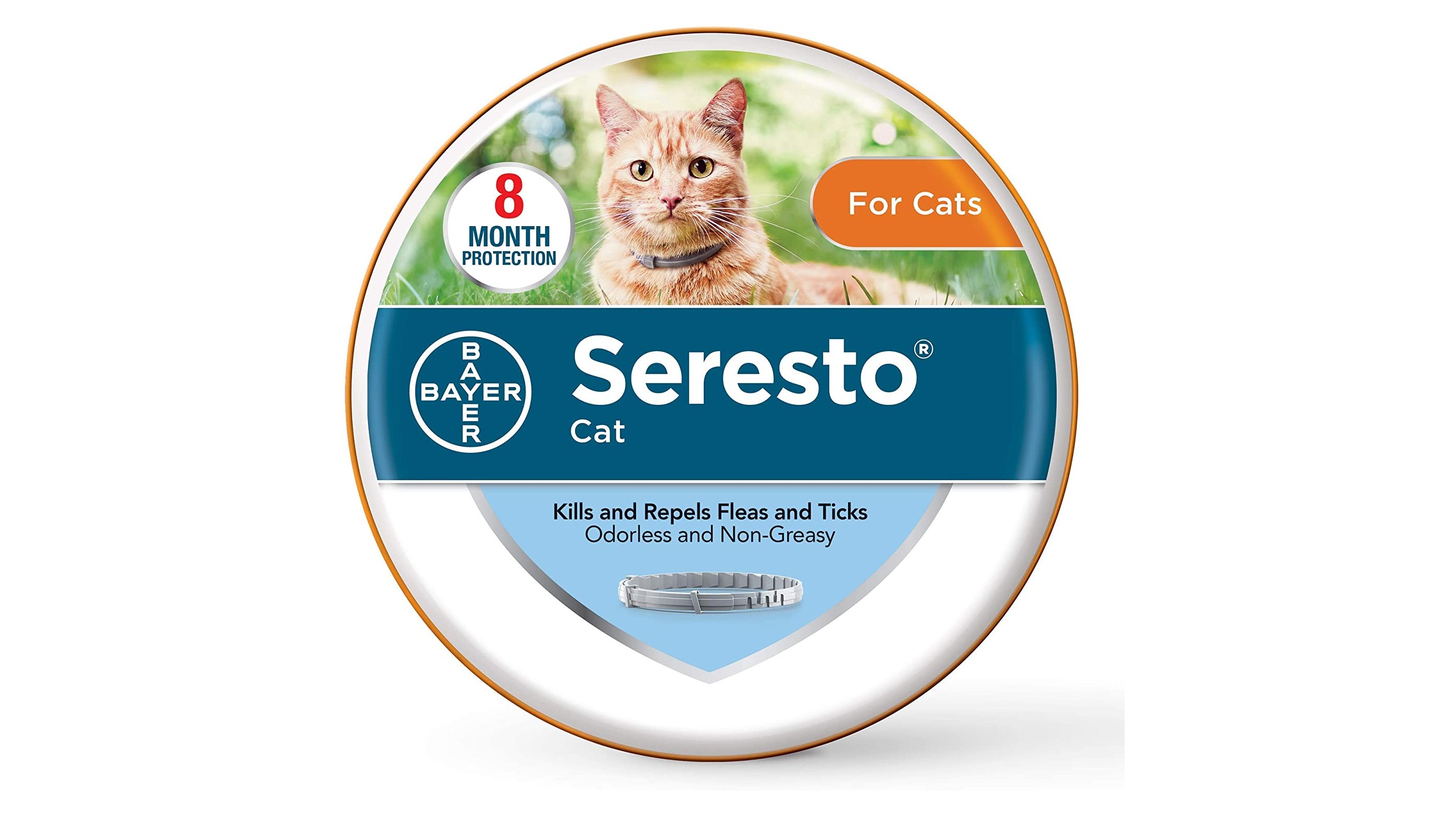
3. Seresto Flea and Tick Cat Collar
Our expert review:
Specifications
Reasons to buy
Reasons to avoid
Seresto collars kill and repel fleas and ticks for up to 8 months. The cat collar comes with a safety-closure mechanism so that your cat will not get caught on anything. It may cause scratching, slight hair loss, and mild skin reactions in the first 1-2 weeks of use. For maximum effectiveness, the collar should not be removed or exposed to large volumes of water. This collar should not be used in kittens under 10 weeks old.
Dr. Diana Hasler BVM&S MRCVS
When it comes to cat flea collars, we're yet to find one that can get the job done as well as Seresto, so it's no surprise that it continues to be a firm favorite amongst pet parents. This is a standout collar that offers eight months of protecting making it a great choice if you're on a budget and not able to stretch to monthly topicals
It’s super easy to attach, lightweight, adjustable, non-greasy and odorless and comes equipped with two safety features for peace of mind: a ratchet-release mechanism and a predetermined breaking point that means the collar will give way in an emergency.
The Seresto flea collar contains two active ingredients, Flumethrin and Imidacloprid, which are slowly released in low doses onto your cat's coat and into the fatty layer of their skin, killing fleas and ticks before they even have a chance to bite.
And unlike topicals, which always carry the concern that your kitty might end up being able to reach the cold blob you've placed on their neck and lick it off, because the ingredient are stored in the collar and released into the skin, you won't have to worry about it being ingested. It's also waterproof, so if they decide to dive into your garden’s birdbath in hot pursuit of feathered prey you can rest assured it'll still stay active.
While it’s one of the more expensive flea collars on the market, we’ve also found it to be one of the most effective and, considering it only needs changing every eight months, the initial investment is cost-effective in the long run.
The best fast acting flea tablets
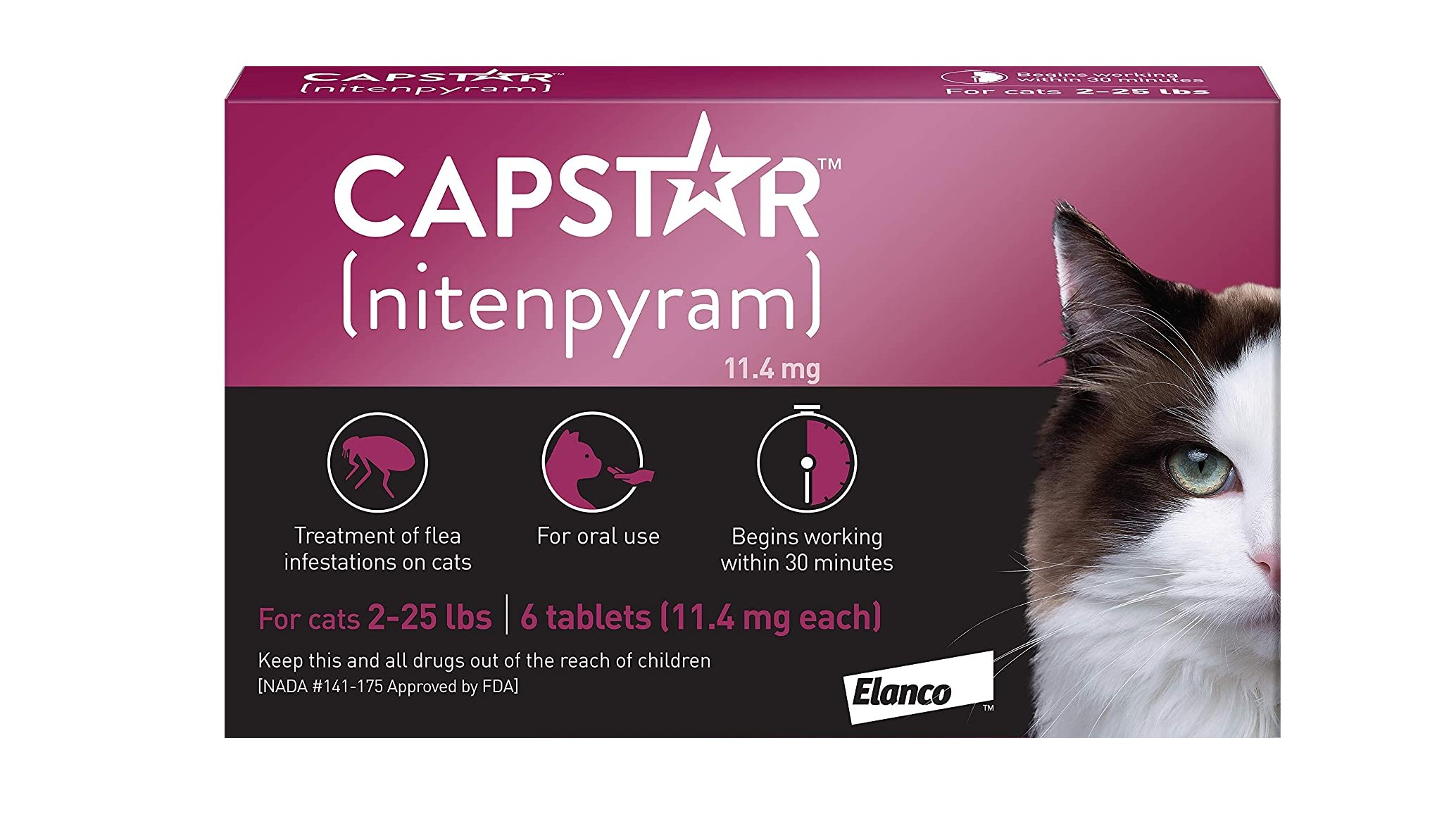
4. Capstar Flea Tablets
Our expert review:
Specifications
Reasons to buy
Reasons to avoid
This tablet acts very quickly, starting to kill adult fleas within 30 minutes of ingestion. Cats may become itchy within the first hour due to the fleas reacting to the product. This medication does not have a long-lasting effect, however, so its main use is to provide quick relief for your pet. It is safe to be given with other oral or topical flea treatments, and it is safe in pregnant and lactating cats. It should not be given to kittens under 4 weeks old or who weigh less than 1 kg.
Dr. Diana Hasler BVM&S MRCVS
If your precious cat is scratching like crazy and looking more than a little forlorn, relief is just 30 minutes away thanks to this fast-acting formula from Capstar.
We love that this product gets to work immediately and kills up to 90% of adult fleas in just six hours. It’s safe to administer one dose every 24 hours, which is fantastic if your cat has a major infestation and its suitability for all cats over the age of four weeks from 2lbs to 24lbs in weight, makes it a great product to have on standby for treating all the feline members of your family.
This oral formula is a great alternative to topical treatments and collars, which can cause skin reactions in some cats, and if trying to pry your fur baby’s mouth open requires a herculean amount of strength on your part, then don’t worry; this is a great product to crush up and add to your cat’s food, making life a whole lot easier for both of you.
One of the huge pluses with this formula is that it works its way out of your cat’s system much faster than topical treatments, meaning your much-loved companion is exposed to pesticides for a much shorter window of time. Capstar also chooses to use Nitenpyram as its active ingredient, an insecticide that has been proven to be lower in toxicity for animals than other commonly used insecticides.
While this product isn’t a replacement for a long-acting treatment, it’s great if you’re after something short-term to provide your cat with immediate relief. As Capstar only kills adult fleas and not their eggs or larvae, once you’ve given the first dose, try pairing Capstar with a product such as Frontline or Advantage, so you’re not only getting rid of the current outbreak but also preventing future ones.
The best fast-acting topical flea treatment
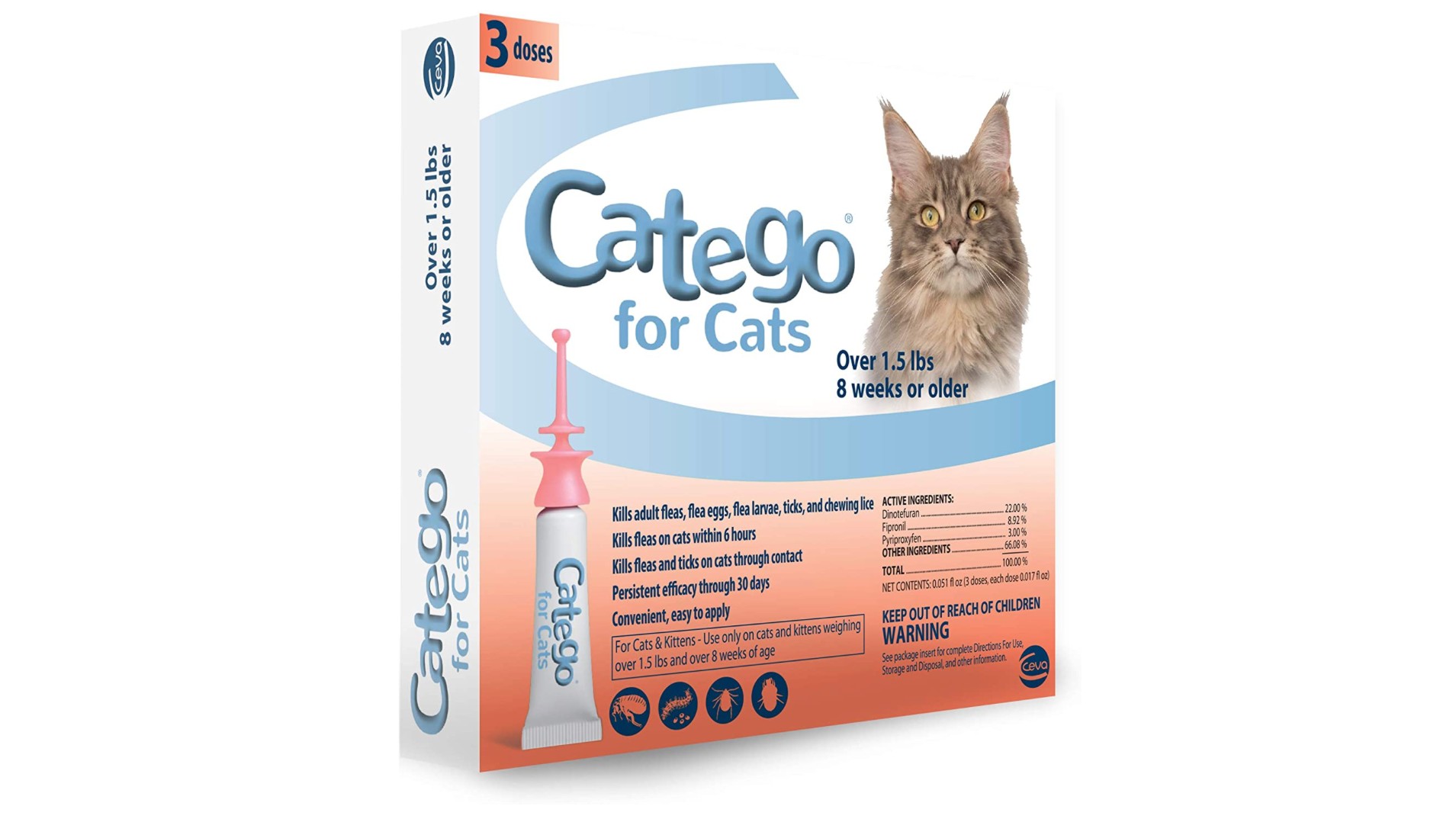
5. Catego Fast-Acting Flea and Tick Treatment For Cats/Kittens
Our expert review:
Specifications
Reasons to buy
Reasons to avoid
This product contains two insecticides and an insect growth regulator, so it can be used to target fleas of all life stages. The packaging has a patented applicator that is easy to use and gentle on the skin for cats with sensitive skin. It should be applied every month, and it should not be used on kittens under 8 weeks old or who weigh less than 1.5 pounds.
Dr. Diana Hasler BVM&S MRCVS
Tired of topicals that take 12 hours to start working? Well, you're in luck because with Catego fast-acting flea and tick treatment, relief is just six hours away! With a unique combination of three proven active ingredients (Dinotefuran, Fipronil, and Pyriproxyfen), Catego works quickly to enable your cat to feel comfortable again.
The patented applicator makes it easy to apply and minimizes risk of skin abrasion. The formula is non greasy, quick drying, and will ensure your kitty stays free from fleas, ticks and lice for up to 30 days.
We love that this product can be used on cats and kittens over the age of eight weeks and weighing more than 1.5 lbs, so it's a great choice if you have a multi-feline household. Available in convenient three and six-dose packs, this fast-acting topical treatment is well worth considering.
The best flea treatment for kittens
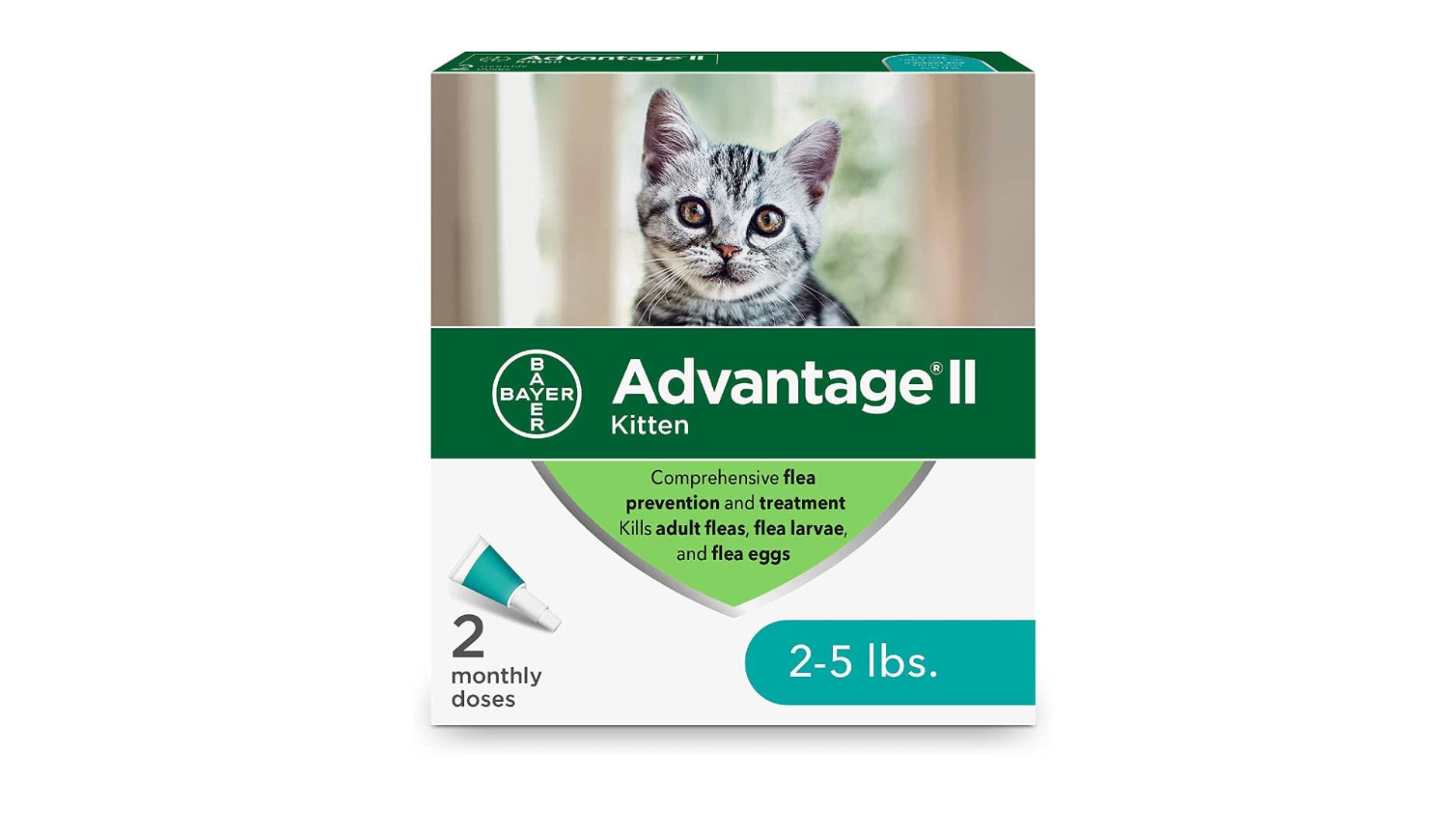
6. Advantage II Kitten
Our expert review:
Specifications
Reasons to buy
Reasons to avoid
This monthly spot-on treatment contains imidacloprid, an insecticide, and pyriproxyfen, an insect growth regulator, to target fleas of all life stages. It contains a small enough dose that it can be given to kittens and small cats weighing 2-5 pounds. It should not be given to kittens under 8 weeks of age.
Dr. Diana Hasler BVM&S MRCVS
Although this topical treatment won't kill ticks, it is vet-recommended to quickly obliterate any fleas that decide to make your feline friend their home. The fragrance-free formula is aimed at kittens weighing between two and five pounds and, as with other similar treatments, it will get to work within 12 hours of application and offer protection for an entire month.
Each pack comes with two doses (ensuring you have enough for two months) and you simply squeeze the content of a tube on to the back of your kitten's neck. The formula contains a systemic insecticide called imidacloprid, which attacks a flea's nervous system. It also has pyriproxyfen, a pesticide that can control flea growth and stop larvae and eggs from maturing.
As such, the product is able to tackle a flea problem at all of its stages while also being as gentle as possible for kittens. Since the formula works through contact, the manufacturer says the fleas won't need to bite in order to die. This ensures that your kitten doesn't have to endure any discomfort during the treatment and it keeps a check on a flea infestation at the earliest possible stage.
That said, there are some side effects. These are not unusual because most medications come with a warning but there is a possibility of gastrointestinal issues and some signs of skin irritation. In general, though, the vast majority of people using this product on their kittens are very happy indeed with reports that fleas are killed within a day or so of the first dose, allowing for ongoing flea-free treatment from that point on.
The best flea treatments for cats: FAQs
How to choose the best flea treatment for cats
When it comes to flea control there’s no better medicine than prevention, but with not all flea treatment products being of equal quality you’ll want to make sure you’re choosing the safest option available.
There are several factors to consider to help you make the best choice for your cat, including lifestyle, age and breed. For cat breeds that prefer being outdoors, fleas, ticks and lice are much more of a problem than for indoor cats, so a product that addresses all of these possibilities is worth the investment.
Some products have restrictions on them so when selecting a product, ensure it’s age-appropriate for your fur baby and also check the weight range to make sure you’re administering the right dosage.
The length of your cat’s coat can also influence the type of treatment you use and which products will be most beneficial. If you have multiple cats, then products that offer affordability may well be the way to go.
Another factor to consider is the type of treatment you’d most prefer to use. There are a range of options from topical preventives, flea collars and oral treatments to flea shampoos, sprays and combs. We recommend combining a fast-acting, but short-term treatment, with a longer-lasting one and products such as combs with flea collars or topical preventives to ensure your cat is adequately protected.
Finally, the best flea treatments for cats are formulated differently to the best flea treatment for dogs and these are not interchangeable so always choose a product labelled specifically for cats. If you're unsure about what to purchase, speak to your veterinarian who can advise you on the best flea treatment for your kitty or take a look at our guide to the safest flea treatment for cats.
What’s the fastest way to get rid of fleas on a cat?
Prevention is always better than cure, so while it’s important to understand the fastest way to rid your fur baby of their infestation, it’s also key to try to stop outbreaks from happening in the first place.
The sooner you discover fleas, the easier it will be to eradicate them, so although performing regular checks isn’t the most pleasant of tasks, it will save you time and money in the long run.
To check your feline friend for fleas, do a reverse rub of their fur, moving the hair from their tail to their head instead of the other way around. You might also like to use a fine-toothed flea comb to help you conduct a more thorough inspection.
If your kitty does indeed have fleas, you’ll either notice these small parasites when you part their coat or see proof of their existence in the form of tiny pepper-like specks on their fur (which are flea feces) or red skin lesions and scab like bumps from where they’ve been bitten.
When it comes to getting rid of fleas fast, Dr. Joanna Woodnutt recommends using Capstar in conjunction with another product, such as the Seresto flea collar. “This tiny tablet kills all fleas on a cat very quickly,” she explains. “However, it doesn’t last more than 24 hours and doesn’t kill any flea eggs or flea larvae in the environment. This means it’s only really useful when taking in a stray from outside – if the cat has already been in your house, Capstar may be part of the solution but it’s not going to work on its own.”
And if you've tried everything and find yourself asking 'why is my flea treatment not working?' speak to your vet who will be able to provide you with advice and guidance on the best course of action.
Should I clean my house if my cat has fleas?
Treating your cat is only part of the fight when dealing with flea infestations. To prevent fleas, there are other things you'll need to do. As veterinary surgeon Rebecca MacMillan explains, “Many cat owners don’t realize that the vast majority of the life stages of the flea take place in the environment. This means for any adult fleas seen on their pet there will be multiple eggs, larvae, and pupae (cocoons) in their house.”
While flea treatments will kill any of these fleas that land on your cat, it can take months before all of the immature fleas have hatched and met their fate. If you want to speed up this process, MacMillan recommends using a pet-safe household spray. Make sure you follow the instructions carefully and the spray should kill any adult fleas, eggs, and larvae in the area. That just leaves those pesky cocoons, which are often tough enough to keep the spray at bay. Fortunately, our vet has a trick for these.
“As well as spraying your home, you should work on making the conditions in the environment more favorable for cocoon hatching. This includes increasing the warmth and humidity - turning the heating on and hanging damp towels on the radiator may help with this” explains MacMillan.
On top of these tactics, regular vacuuming and cleaning are vital too. Your vacuum cleaner can suck up some of these tough cocoons, and the vibrations it causes can also encourage others to hatch early. MacMillan also recommends hot washing your cat’s bedding, along with any blankets, towels, and other fabrics that they lie on.
Finally, our expert vet reminds us that you must keep up your cat’s treatment regime throughout the infestation. “Don’t forget the absolute best thing you can do to get on top of a flea problem is to make sure all the pets in your home are treated with an effective anti-flea product, following the treatment intervals the manufacturer recommends (no gaps!). Speak to your vet for advice on this and also for a product they would recommend when treating your home.”
Can cats get rid of fleas on their own?
The short answer is no – cats can’t get rid of fleas on their own. “Cats don’t fight off fleas like they would fight off an infection, because the fleas aren’t inside the body, so the immune system can’t attack,” says Woodnutt. “They can try to groom them off, but fleas have evolved to evade cats’ grooming habits and will happily live on a cat for years. Not only that, but fleas carry tapeworm, so when your cat does manage to groom a flea off and swallow it, they will then be infected with tapeworm.”
Not only can our feline friends not get rid of fleas on their own but these pesky parasites can reproduce very quickly by laying more eggs, not just in your cat’s fur but also on your carpets, in your bedding, and in other spots around your home. When it comes to ways to be the best cat owner, it’s imperative that you use a good quality flea treatment to keep your kitty protected 24/7.
In terms of how often do you treat cats for fleas, the answer will vary based on which kind of treatment you opt for. However, as a general rule, topicals need to be applied every 30 days, while flea collars will tend to remain effective for 7-8 months.

Dr. Diana Hasler graduated with distinction from the University of Edinburgh Royal (Dick) School of Veterinary Studies in 2018. She has experience working as a small animal veterinarian in general practice, where she has treated many dogs, cats, rabbits, and rodents.

Dr Joanna Woodnutt qualified as a veterinarian from the University of Nottingham where she then went on to practice companion animal medicine in the Midlands. She really took to the consulting side of things and helping clients with medical problems such as dermatology, behaviour and nutrition - anything that involved helping clients understand their pets better.
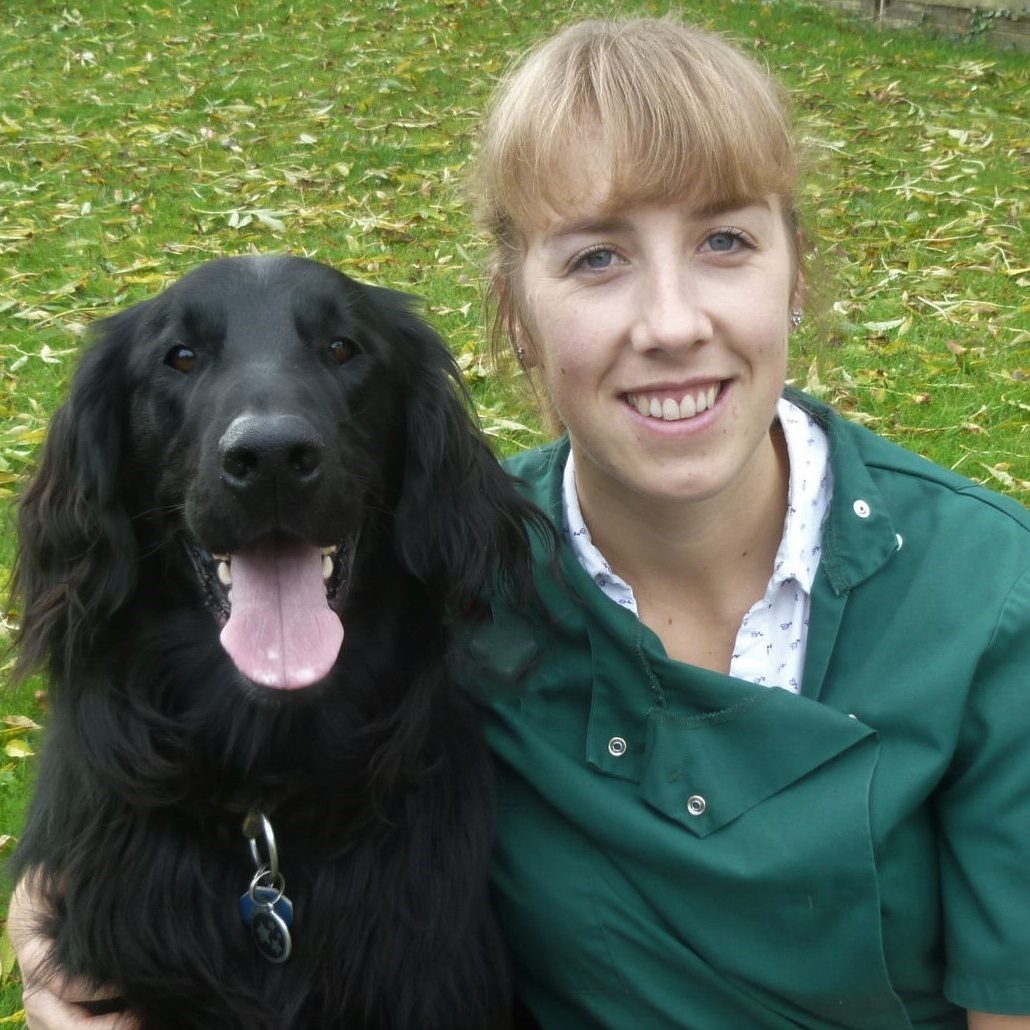
Rebecca is a vet surgeon who graduated in 2009 from the Royal Veterinary College in London. She has a wealth of experience in first opinion small animal practice, having done a mixture of day-to-day routine work, on-call emergency duties and managerial roles over the years. She enjoys medicine in particular and she is proud to have recently achieved a BSAVA postgraduate certificate in small animal medicine (with commendation). She writes on various feline and canine topics, including behavior, nutrition, and health. Outside of work and writing she enjoys walking her own dog, spending time with her young family and baking!
PetsRadar Newsletter
Get the best advice, tips and top tech for your beloved Pets

Kathryn is a freelance writer who has been a member of the PetsRadar family since it launched in 2020. Highly experienced in her field, she's driven by a desire to provide pet parents with accurate, timely, and informative content that enables them to provide their fur friends with everything they need to thrive. Kathryn works closely with vets and trainers to ensure all articles offer the most up-to-date information across a range of pet-related fields, from insights into health and behavior issues to tips on products and training. When she’s not busy crafting the perfect sentence for her features, buying guides and news pieces, she can be found hanging out with her family (which includes one super sassy cat), drinking copious amounts of Jasmine tea and reading all the books.
